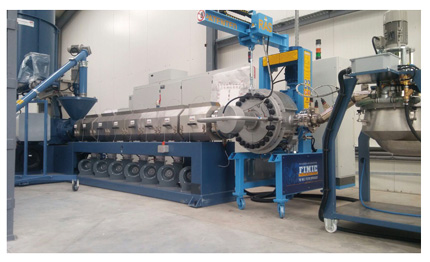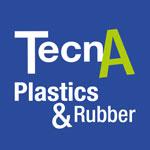 Fimic technology has long realized the progressive shift towards the need to further refine plastics intended for recycling
Fimic technology has long realized the progressive shift towards the need to further refine plastics intended for recycling
Fimic technology, renowned on the market for years for its ability to manage highly contaminated materials with filtrations normally suitable for injection moulding applications (because the market demand was for these applications up until a few years ago) has long realized the progressive shift towards the need to further refine plastics intended for recycling. The RAS self-cleaning filter, using the laser-drilled screen with filtration down to 80 microns, not only allows you to recycle highly contaminated materials independently and continuously without the constant need for operator, but also guarantees a material which is clean and retaining at the same time its mechanical resistance properties. In fact, recycling companies who have chosen Fimic’s solutions for continuous filtration say that the obtained material is highly flexible and clean.
Reasons for choosing Fimic
There are many reasons why this is a great choice; one of them being the wide filtration surface that the Fimic RAS melt filters are based on. The different sizes part of the Fimic range, feature a progressive increase in the diameter of the filter, which corresponds to an increase in production capacity (the largest model, the RAS700 has a filtration surface of approximately 3900 cm²). This key feature, among others, sets Fimic’s technology apart from its competitors on the market, who split the melt flow into multiple filtration chambers and thus multiply all spare parts involved, resulting in an increase in operational costs that is directly proportional to the increase in production. The Fimic RAS melt filter, which is using one screen only, with an increased diameter as per project’s requirements, guarantees a significant reduction in operational costs, also thanks to an increase in the output performance.
Materials which can be recycled with Fimic
Contrary to popular belief, it is possible to process and transform waste having different contamination levels, even unwashed, into high-quality pellets suitable for sensitive applications such as blown films. A typical case study is commercial films (a.k.a. supermarket films or packaging films): this material stream is slightly contaminated, typically below 5%. Being a very specific material stream, it is made of up to 99% LDPE and LLDPE, with very low traces of foreign plastics. By applying Fimic’s laser filtration the contamination, especially from paper labels and adhesive tapes, is efficiently and smoothly removed without decreasing both operational pressure and output performances. The scraper continuously collects inside it the contamination from the screen and automatically releases it after a pre-set adjustable time period. In this way, the contamination never resides in the filtration chamber for more than a few seconds. It is well known that paper labels include sub-contaminants such as moisture, inks and glues which, if residing too long at high temperatures create extra gas formations leading to swollen, low-quality pellets.
Fimic’s technology, combined with the use of Fimic’s laser screens (whether 80, 100, 120 or 150 micron), can efficiently handle the material and contaminations, guaranteeing an excellent pellet quality and at the same time, low melt losses, proportional to the contamination degree. The melt losses are, in fact, adjusted by the automated valve discharge mechanism, as this solution is not forced to discharge continuously, only when needed, thus avoiding unnecessary melt losses. Furthermore, as the discharge duration is only a few seconds long, the pellets shape undergoes no alteration whatsoever.
For further information:
www.fimic.it
export@fimic.it






